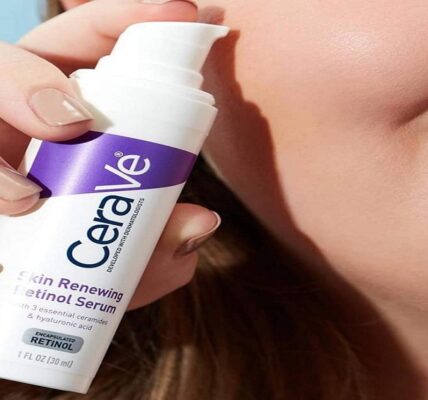Most skin types with oiliness and acne issues encounter considerable difficulties when searching for suitable sunscreen choices. The traditional forms of sunscreen create a greasy feel on users’ skin while inducing pore obstruction which results in excessive discomfort. Sun protection education has led to increased demand for sunscreen formulations designed for both oily skin and acne breakdowns. Gel sunscreens work best for people with oily skin since they protect their skin and maintain its balance. This article provides guidelines for selecting the best Sunscreen for oily skin types while discussing both the importance of sunscreen protection and recommending gel-based products.
1.Understanding oily skin and its unique needs
Oily skin produces an excess volume of sebum which represents the natural oil that sebaceous glands generate. Oily skin possesses higher susceptibility to enlarged pores and recurring breakouts alongside blackheads and shine from the surface of the skin. People with oily skin need to pick skincare products which balance oil regulation with skin hydration. Thick and creamy sunscreen formulations together with oil-based products can worsen the problems faced by users. Fast-absorbing sunscreen products with non-comedogenic properties and lightweight texture make the best choice for oily skin since they avoid pore-clogging and minimize potential acne breakouts.
2. Why sun protection is crucial for oily skin
People often believe that individuals who have oily skin do not need the same level of UV protection that dry-skinned people do. UV rays from the sun damage every skin type through their destructive impact on both premature ageing and skin pigmentation and sunburns and they can cause skin cancer. Prolonged exposure to the sun causes damage to all skin types which results in premature aging. Additionally, oily skin becomes even more problematic because UV rays can trigger increased sebum production. Products that contain suitable sunscreen should be used daily to protect skin from sun damage manage oil production and preserve skin barrier health. Oily-skinned individuals must select appropriate sunscreen products that protect their skin in both short-term and long-lasting ways.
3.Benefits of using gel-based sunscreen for oily skin
People with oily skin should choose gel sunscreen because its light formulation adapts effectively to this skin type. Gel-sunscreen solutions with water or silicone bases quickly penetrate skin tissue before becoming transparent while avoiding the creation of oily or paste-like residues. Gel-based sunscreens create a comforting experience through their cooling effect while people use them throughout the day. Many gel sunscreens include features that make them safe for skin prone to acne while eliminating fragrance and preventing the formation of skin blockages. Gels with their non-shiny texture are preferred by people battling excess oil because they offer shine management.
4. The essentials you must seek when selecting sunscreen for oily skin
Sunscreen effectiveness relies on ingredient selection together with SPF value measurement. The selection of sunscreen for oily skin should focus on products which combine oil-absorption properties with calming ingredients. When used on the skin surface zinc oxide and titanium dioxide act as physical blockers that reflect UV rays. The skin-soothing benefits of niacinamide combine with its ability to control excessive skin oil. Acne-prone skin receives beneficial effects from using minimal levels of salicylic acid. Hyaluronic acid supplies needed moisture to the skin without causing additional oil buildup. These sunblock components maintain protective effects while simultaneously preventing irritation that commonly plagues oily skin.
5. How to apply sunscreen on oily skin for best results
The proper technique used during sunscreen application determines how effectively your skin can benefit from its protective effects particularly when you have oily skin. When following your skincare routine apply sunscreen place it as your final step after cleansing your face then toning your skin followed by moisturization. Apply sunscreen starting with a dime-sized amount which should cover your face and neck region evenly. Repeated applications of sunscreen need to happen every two to three hours yet carry increased importance when you spend time under direct sunlight. Apply blotting paper before sunscreen reapplication to help those with oily skin prevent disruption of products along with maintaining low face oil levels. Oily-skinned individuals experience better results by choosing sunscreen gels since these products rapidly absorb into the skin to avoid leaving any residue throughout the day.
6. Common mistakes to avoid when using sunscreen on oily skin
People with oily skin face particular issues when choosing and applying the proper sunscreen because several common mistakes reduce its protective value. The incorrect usage of sunscreen products containing high oil levels and thick textures leads to pore clogging that results in breakouts for oily skin types. The practice of omitting sunscreen on overcast days or while staying inside remains a frequent error since UV rays manage to pass through glass making skin vulnerable to damage. The protective benefits of sunscreen decrease when users fail to reapply sunscreen frequently or use insufficient sunscreen amounts. The protective power of sunscreen exceeds makeup with SPF but actual sunscreen should be used instead because makeup fails to offer sufficient protection.
7. Lifestyle and skincare tips for oily skin in sunny climates
Taking care of oil-prone skin in hot sunny environments needs an extensive strategy which extends past only applying sunscreen. You can decrease skin oil and sweat levels by using mild foaming cleansing products daily. Water-based lightweight moisturizers aid in hydration without causing pore blockages. Using blotting sheets together with oil-control primers and carefully selected minimal makeup enables individuals to control facial shine daily. Wide-brimmed hats together with sunglasses help shield your skin from the sun while protecting it through physical means. The combination of correct lifestyle choices and specific gel sunscreen formulations made for oily skin enables the skin to maintain equilibrium even when exposed to vigorous sunlight.
8. How to choose the best sunscreen for oily skin according to skin sensitivitie
Due to sensitivity and acne commonly found in oily skin, individuals need to approach sunscreen selection with extreme care. Your risk of irritation decreases when you use products with “dermatologist-tested” “non-comedogenic” and “oil-free” labels. People who have experienced skin allergies should conduct a patch test before using any new sunscreen. The use of products without fragrances and alcohol works best for individuals who have sensitive oily skin. Sunscreen made in gel form for oily skin contains soothing compounds like aloe vera green tea extract or calendula to offer effective sun protection with calming properties. The identification of one’s specific triggers and needs leads to more informed purchasing decisions.
People who have oily skin can protect themselves from UV radiation through products that do not cause discomfort. Gel-based and oil-free sunscreens now provide solutions for oily and acne-prone skin types because they suit their special skincare requirements. A sunscreen that matches oily skin requires delicate weight, fast absorption and a non-occlusal formulation to deliver dependable UV protection while avoiding excess oil or acne formation. A gel-based sunscreen product designed specifically for oily skin users proves itself as the ideal daily sunscreen option because of its customized features for different skin types. Gel-based sunscreens for oily skin work well because they create a non-shiny appearance while preventing pores from getting blocked. A combination of proper skin care practices and suitable sunscreen usage leads to improved skin health which results in radiant skin balance across all seasons.








